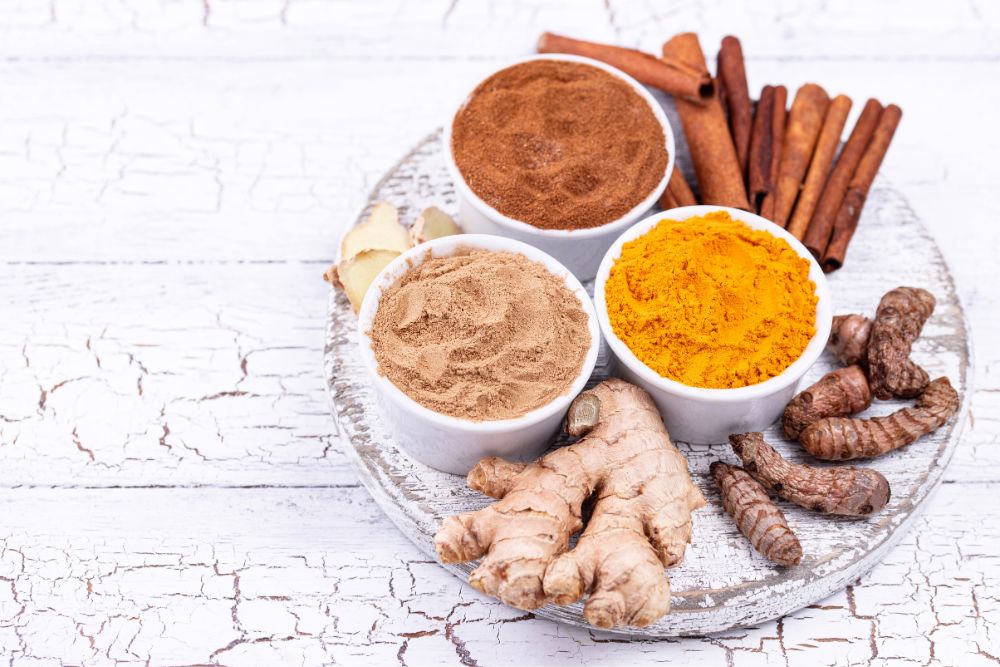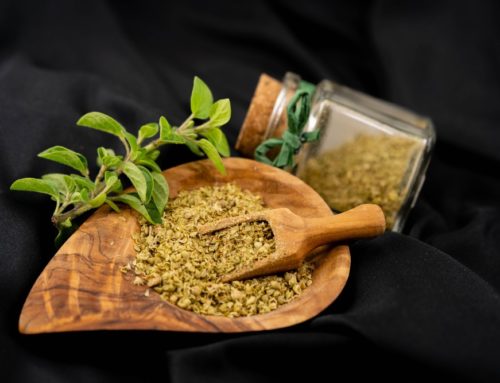3 Most Powerful Anti-inflammatory Spices for Digestive Issues
From onion to oregano to garlic to ginger, there are many anti-fungal, anti-microbial and anti-inflammatory spices that you can add to your diet for optimal gut health. Some of them are believed to be more effective than others.
Spices and herbs are most commonly added to meals for their flavor. However, they can also be taken as teas and supplements with each meal as they have powerful healing properties for digestive problems. It might not be prescription medication, but you’ll still need to sharpen your health education to prevent complications. Here’s a brief look at how each of these three spices can benefit your digestive health.

3 Powerful Antifungal/Anti-inflammatory Spices
When taken as teas or a supplement with each meal, the right spices can help with digestive conditions. To prevent complications, it’s key that you follow the instructions of a medical professional instead of trusting your own gut. Too much of a “good thing” (even in small quantities) can lead to overdosing which in some instances can leave permanent injuries.
It’s only when you add it in a responsible way that you’ll reap the following health rewards.
Cloves
One of the most powerful anti-fungal, anti-microbial and anti-inflammatory spices is cloves. When used as a dietary supplement, it can help to lower the body’s inflammatory response. Cloves are believed to help with digestive problems in several ways:
One of the main benefits of cloves is that it’s an excellent source of eugenol, an oily liquid. Aside from lowering inflammation, this liquid can also give your liver function a boost.
Cloves are also packed with antioxidants. These antioxidants make it easier for your body to fight free radicals which can help to lower the risk of developing diabetes.
Some of the other ways that cloves can aid digestion is by reducing stomach ulcers. It can also be used for treating nausea and unhappy tummies.
Cinnamon
Cinnamon is also a powerful anti-inflammatory spice that can offer numerous health benefits like the ability to stimulate the production of digestive enzymes, and promote gut health. It’s known for aiding digestion and can reduce gas, bloating, and indigestion.
Cinnamon has natural antimicrobial properties due to its essential oils. These properties may help inhibit the growth of harmful bacteria and pathogens in the digestive system, promoting a healthier gut environment.
It’s also believed to contain antioxidants and have anti-inflammatory as well as antifungal properties. These properties can help to reduce inflammation in your digestive tract and fight infections, like tooth decay from munching on those cinnamon-infused baked goods. Combine its familiar taste with these health benefits and it comes as no surprise why it’s one of the most popular anti-inflammatory spices.
Turmeric is another anti-inflammatory spice
For thousands of years, turmeric has been used to treat a wide range of conditions that include treating digestive issues. Brightly colored and synonymous with Indian cuisine, it’s one of the “trending” anti-inflammatory spices and can help to lower inflammation in the gut.
A recent study has found that turmeric or curcumin (a biologically active polyphenolic compound found in the spice) alone or in some causes in combination with other medication can help to alleviate the symptoms of irritable bowel syndrome (IBS). It can especially be helpful for soothing abdominal pain.
While we enjoy these aromatic and palatable spices that can help to elevate dishes like pumpkin pie and flavor all-time favorite drinks like homemade hot apple cider or several comfy foods like cinnamon buns, apple pie, and churros, they are not healthy. However, when used as supplements in appropriate quantities, these spices can possess medicinal properties.
This article is for educational and informational purpose only and does not substitute for professional medical advice. For any questions about your own health condition, speak to a qualified physician or healthcare provider.







Leave A Comment